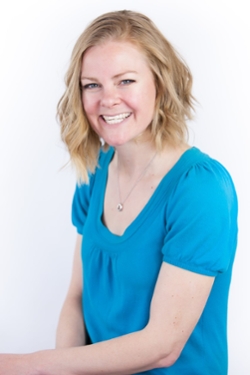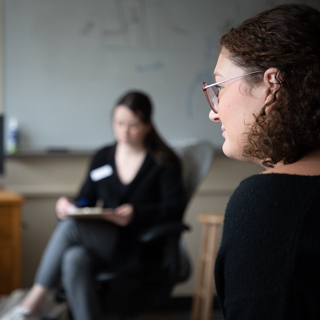Erica Sandiland

Interview Questions
What degree(s) do you have and where did you earn it (them)?
I earned my BSW (2005) and MSW (2009) from the University of Montana
What is your title?
Clinical Manager, YWCA Missoula
How did you come to work at your organization?
For 11 years before I began working at the YWCA I worked as a Child Protection Specialist at CPS and then as a CSCT and outpatient mental health therapist with children and families- which I loved! Once I became a mother I realized I needed to work part time and with a different population to protect myself from secondary trauma and burn out. Switching my concentration to adults who had histories of domestic violence and sexual assault made sense for me and was an enriching career move. I was looking for a change and I loved the mission at the YWCA. What can be a better mission than: “YWCA is dedicated to eliminating racism, empowering women and promoting peace, justice, freedom and dignity for all.”?
What do you appreciate most about supervising practicum students?
I like that students constantly remind me to think about what I’m doing and why I’m doing it. Working with students pushes me to keep up to date on best practices and utilize evidenced based practices. I love the energy, curiosity and positivity that student bring to the work. I’m also passionate about teaching people who are entering the field (or have lots of experience in the field and are furthering their education) about secondary trauma so they can have language around experiences they have when working with trauma survivors. I think the psycho-education up front and then on-going support to mitigate and manage secondary trauma is a huge piece of supervision and a part I really enjoy.
What does being a social worker mean to you?
To me, social work means understanding that human beings exist in imperfect systems. Social work means understanding systems and how people function within those systems. Systems can mean so many different things: a person’s body, their family, their work, their local, state and federal legal and government systems, our planet, historical and cultural systems (to name just a few). I think it’s a social workers job to see all those systems and how they interact and effect each other and how a person is affected and can affect all systems. Holding hope for people when they feel powerless within systems and highlighting the power people have to make choices and make changes and accept the here and now is what I think social work is all about. It’s also about advocating for system change so people can have the opportunity to live the life they want for themselves. And last but most important to me, social work is working from anti-oppression frameworks!
How does your role as a social worker relate to your role as a supervisor?
I like to remember how important parallel process is. I work to support students in what they need so they can provide for clients what they need. I’m always aware that I’m modeling how to be with people, support them, empower them, trust them to make good decisions, hold them to high standards and respect their culture, history, -isms, just like I expect my supervisees to work with clients. I use all my social work skills when supervising students!
What is the most important thing you hope your practicum students take with them into their careers?
I hope students take away the infinite possibilities of social work and deep respect for the work. We have the honor of working with vulnerable populations and accompanying people through crisis, change, transformation, trauma and healing. We have the great responsibility to be ethical and effective and honor our clients and ourselves in the work.
What is your favorite quote that exemplifies social work?
“When we identify where our privilege intersects with somebody else's oppression, we'll find our opportunities to make real change.”
― Ijeoma Oluo, So You Want to Talk About Race
“Returning hate for hate multiplies hate, adding deeper darkness to a night already devoid of stars. Darkness cannot drive out darkness; only light can do that. Hate cannot drive out hate, only love can do that.”
― Martin Luther King Jr., Strength to Love
“I cannot say whether things will get better if we change; what I can say is that they must change if they are to get better.”
― Georg Lichtenberg
Any final words of wisdom?
Nope :)
